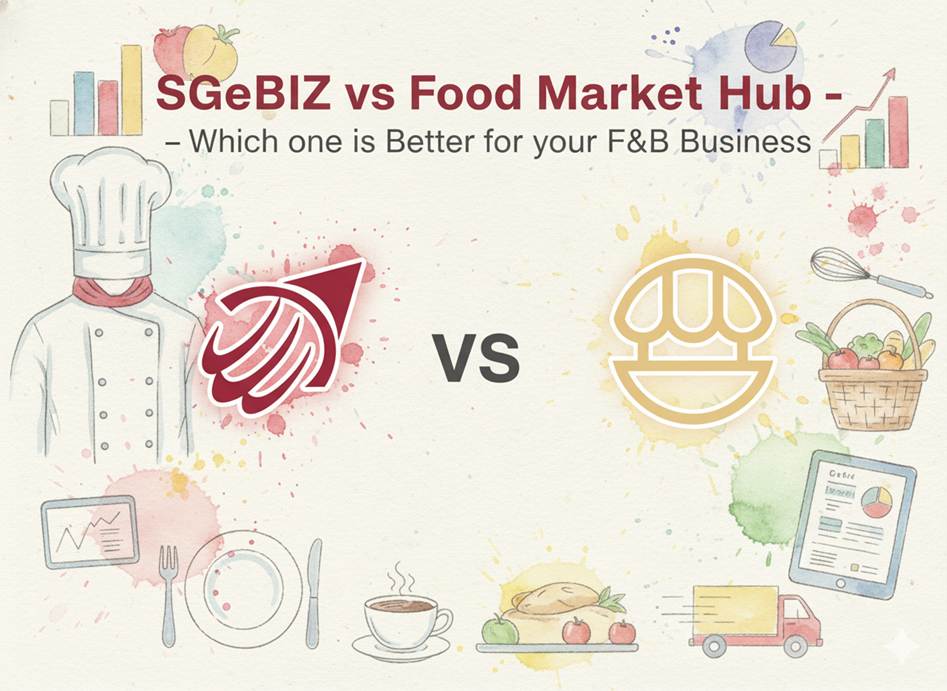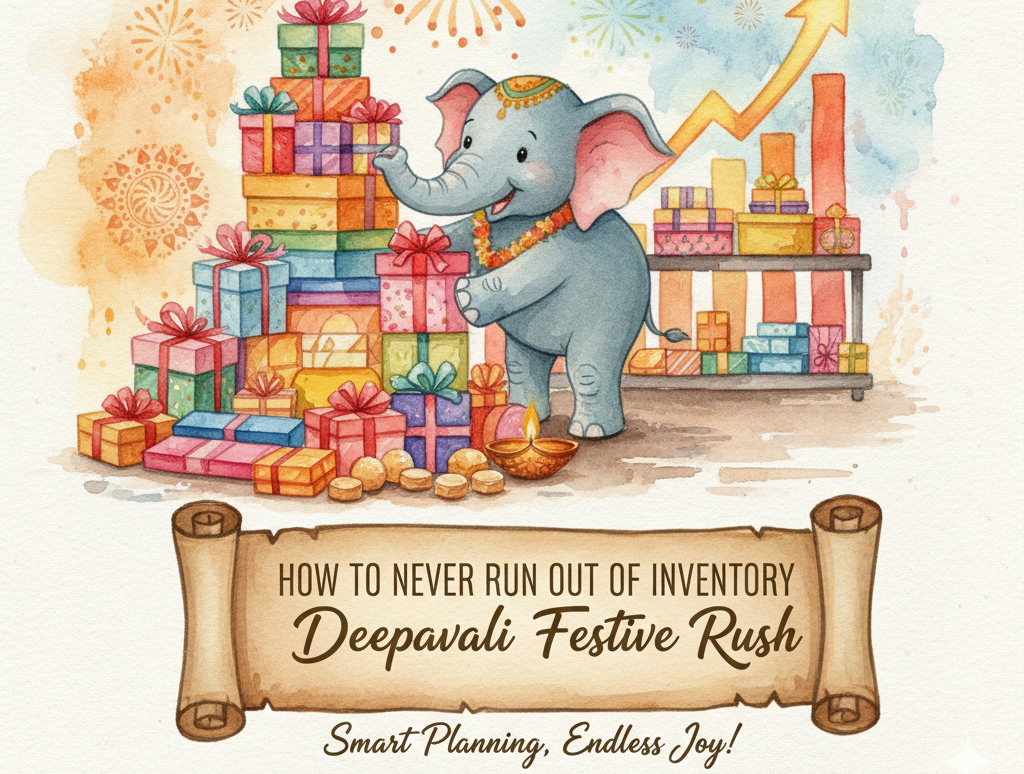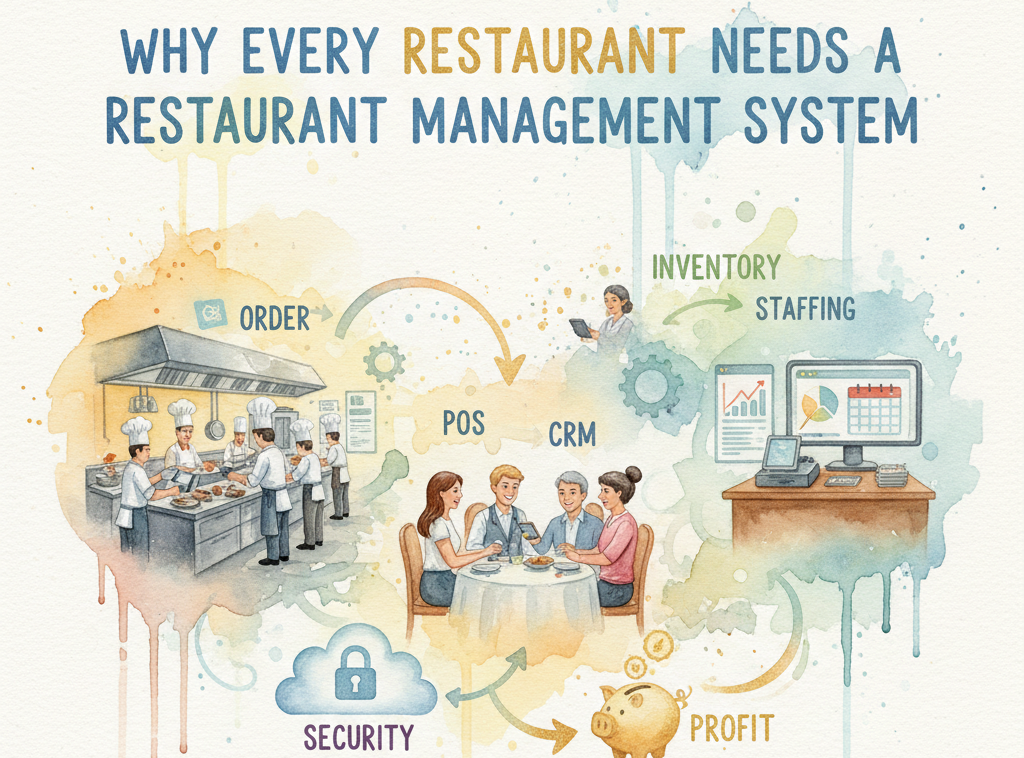ERP System for Restaurants (Detailed Explanation)

Managing a restaurant on your own is a complex task. But what if I say that there’s an assistant that is sharp and does all the complex stuff? That assistant is an ERP system or enterprise resource planning system. But what exactly is an ERP system for restaurants? Let me explain it to you.
An ERP system is software that helps you manage all the important areas of your restaurant from one place. It’s like having a super-smart assistant that organizes your inventory and sales. With an enterprise resource planning system, you don’t need to juggle multiple tools. Everything is integrated and works together smoothly. It’s designed to make your life easier and your restaurant more efficient.
Imagine you’re running your restaurant on a busy Friday night. Orders are flying in, the kitchen is bustling, and your staff is busy with their work. An ERP system acts like a control center that ensures everything runs smoothly. It tracks orders, updates inventory in real-time, and even generates sales reports. If you’re out of stock on a particular item, the system alerts you immediately. This helps avoid disappointing your customers.
I have seen restaurant owners struggle with handling last-minute supply shortages. With an ERP system, this issue can be avoided. The software can forecast demand based on past sales and suggest what stock you need to order. This means fewer surprises and more satisfied customers.
What Does ERP Mean in the Food Industry?
Enterprise resource planning software hasn’t been traditionally used by restaurants. They are being used by different stores. But recently the restaurant or the food industry felt the need for an ERP. Restaurants deal with perishable goods which adds a layer of complexity to inventory management. An enterprise resource planning system helps you reduce food waste, and ensure that you’re always serving fresh ingredients.
Another big challenge in the food industry is managing recipes. An ERP system can store detailed recipes and calculate the cost of each dish. This ensures consistent quality and helps you set the right prices. It also tracks how much of each ingredient you use, so you can keep your food costs under control.
Benefits of Enterprise Resource Planning Systems for Restaurants
Let’s dive into why an ERP system is a game-changer for restaurants. First, it saves time. Instead of spending hours reconciling accounts or counting inventory manually, you can let the system do it for you. According to a study by Aberdeen Group, businesses using ERP systems see a 20% reduction in operating costs.
Second, it improves accuracy. Manual processes are prone to errors. You might accidentally overorder stock or miss an important payment. An ERP system can help you monitor the reports and ensures that nothing falls through the cracks. For example, the software can automatically send payment reminders or you can set how much each staff member can order, if their ordering amount exceeds the set limit there will be an extra layer of approval that will be required.
You can rely on an ERP for order accuracy as well. I have seen so many restaurants get negative reviews just because of incorrect orders.
Features of an ERP System for Restaurants
A good enterprise resource planning system comes with several features tailored to the needs of a restaurant. One of the most important features is inventory management. The system tracks your stock and helps you avoid overstocking or understocking. It also provides detailed reports, so you know exactly what’s going on in your kitchen.
Advanced ERP systems come with protective features that can help you limit access to only the necessary staff members.

ERP systems also offer point-of-sale (POS) integration. This means that all the sales data from your cash registers or tablets automatically syncs with the system. ERPs can also generate detailed reports that you can use to improve the sales of your restaurant. This is the biggest secret that successful restaurant owners will never tell you. They have all been in your place, studied the customer trends, made changes and excelled. You have to take advantage of this goldmine of data.
How to Choose the Right ERP System for Your Restaurant
Choosing the right ERP system is crucial. Not all systems are created equal, and some may not meet your specific needs. Start by assessing what you need help with. Do you struggle with inventory management, or is payroll your biggest headache? Once you identify your pain points, look for a system that addresses them.
You should also consider the system’s ease of use. An ERP system should simplify your operations, not make them more complicated. Look for software that is user-friendly and comes with good customer support. After all, you don’t want to spend hours trying to figure out how to use it.
Cost is another factor to consider. ERP systems can be a big investment, but they’re worth it in the long run. Many providers offer subscription plans, so you don’t have to pay a large sum upfront. According to a report by Panorama Consulting, the average return on investment for ERP systems is 150%.
Common Myths About ERP Systems
Some restaurant owners think that ERP systems are only for big chains. This isn’t true. While it’s true that larger businesses benefit greatly from ERP systems, small and medium-sized restaurants can also gain a lot.
Another myth is that ERP systems are too expensive. While the initial cost can seem high, the savings in time, reduced errors, and improved efficiency often outweigh the expense. Plus, there are affordable options for every budget.
Finally, some people worry that ERP systems are hard to use. Modern ERP software is designed to be intuitive and easy to navigate. The best part is that you can change the language of the interface to your regional language. Most providers also offer training and support to help you get started.
FAQs
- What is ERP in Restaurants?
ERP in restaurants is a software system that integrates all your restaurant operations into one platform. It helps with inventory, sales, finances, and customer management.
- What Does ERP Mean in the Food Industry?
In the food industry, ERP means better management of perishable goods, recipes, and costs. It ensures efficiency and reduces waste.
- Why Should I Use an ERP System?
You should use an ERP system to save time, improve accuracy, and enhance customer service. It helps streamline your operations and boosts your profitability.
- Is an ERP System Expensive?
While ERP systems can be an investment, many affordable options are available. The long-term benefits often outweigh the cost.
- Can Small Restaurants Use ERP Systems?
Yes, small restaurants can use ERP systems. Many providers offer solutions designed for smaller businesses.
An ERP system can help you to run your restaurant without going mad in this process. If you want to stay updated with your financial reports, get timely inventory alerts or want to manage suppliers then you have to have an ERP system. Food Market Hub makes one of the best ERP systems and you should check it out!
Do you know what’s even better? The collaboration that’s happening between Food Market Hub and EasyEat!










